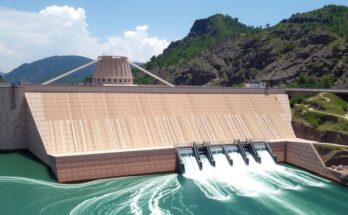Zambia and Botswana are considering the establishment of sovereign wealth funds to address fiscal pressures stemming from structural challenges and revenue constraints, particularly in light of Zambia’s drought-stricken economy and Botswana’s mineral wealth. The effectiveness of these funds remains uncertain given the existing economic difficulties both countries are facing.
Zambia and Botswana are currently exploring the establishment of sovereign wealth funds (SWFs) aimed at fiscal stabilization due to ongoing pressures on revenue and expenditure. Both nations are facing significant structural challenges that raise questions regarding the timing and effectiveness of such initiatives. In Zambia, the adverse effects of prolonged drought have severely impacted the economy, prompting the government to consider a rainy day fund designed to cushion the economy during difficult times. Despite these initiatives, experts suggest that the scale of the challenges may render these plans insufficient to adequately address the current fiscal deficits. Similarly, Botswana is assessing its mineral wealth as a foundation for a sovereign wealth fund. The country, rich in diamonds and other minerals, recognizes the necessity to optimize resource management to ensure long-term economic stability. However, structural issues and spending pressures may hinder the successful implementation of these funds. This proactive approach by both nations highlights the urgent need for comprehensive fiscal strategies that can withstand external shocks and promote sustainable economic growth. Yet, without addressing the underlying structural problems, these strategies could fall short of their intended objectives.
The economies of Zambia and Botswana have faced several structural challenges, including fluctuating commodity prices, inadequate infrastructure, and external economic pressures. Both countries are heavily reliant on mineral wealth, particularly in sectors such as mining and agriculture. However, recent fiscal constraints have led to increased attention towards the establishment of sovereign wealth funds as a mechanism to stabilize their economies and manage revenue fluctuations effectively. The concepts of fiscal stabilization and revenue sustainability are critical in understanding the decisions being made by these nations.
In conclusion, while Zambia and Botswana’s initiatives to create sovereign wealth funds as a response to current fiscal pressures are commendable, the effective realization of these funds may be hampered by existing structural challenges in both economies. Addressing these fundamental issues will be crucial for the long-term success of their strategies aimed at economic stabilization.
Original Source: globalswf.com




